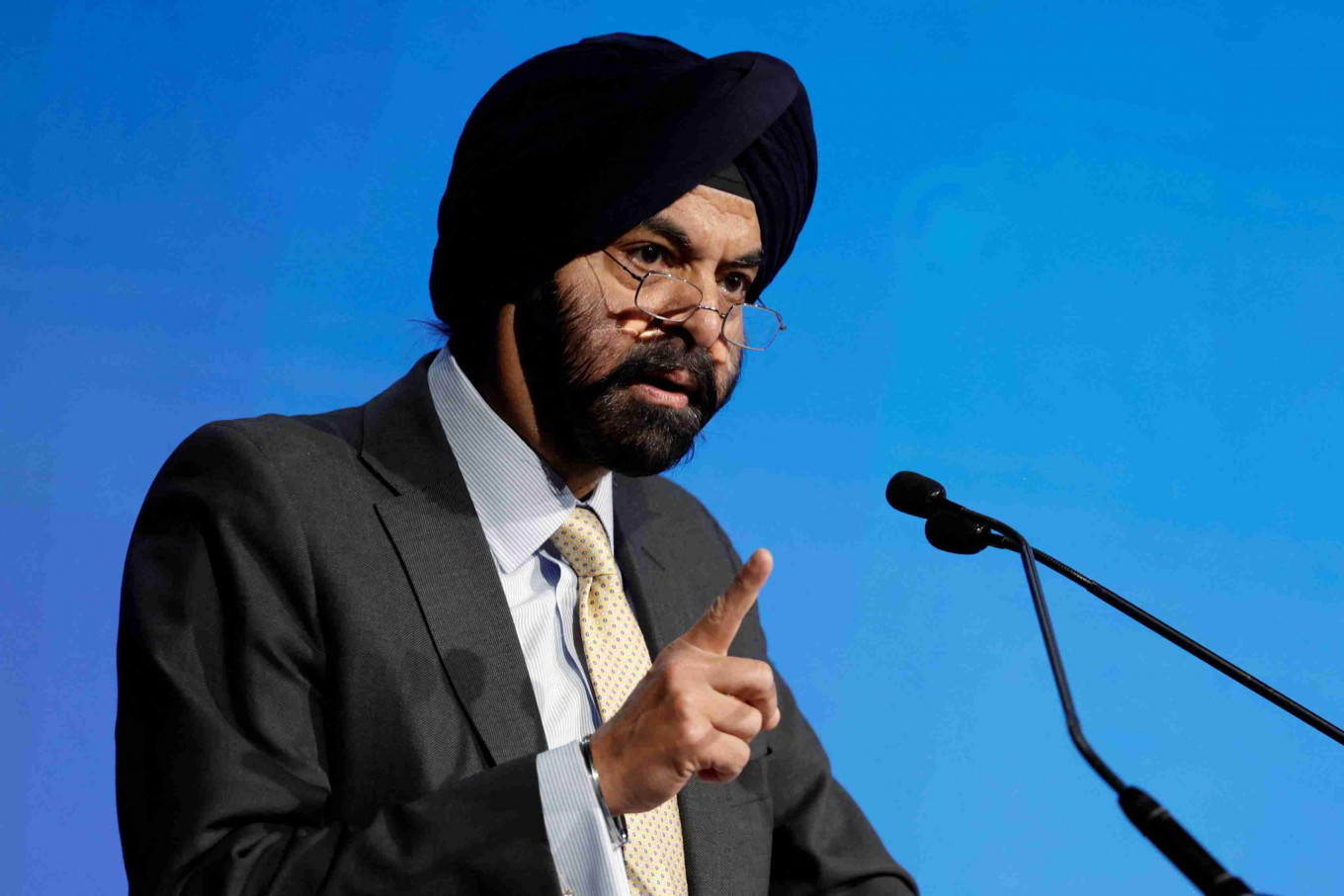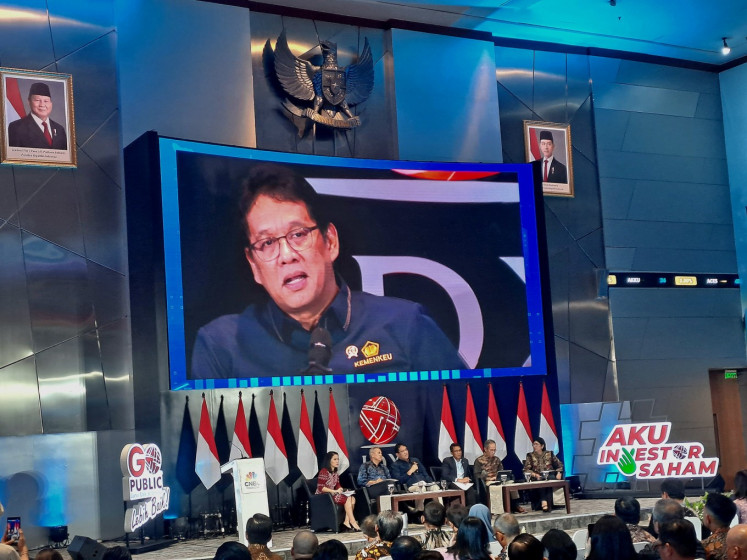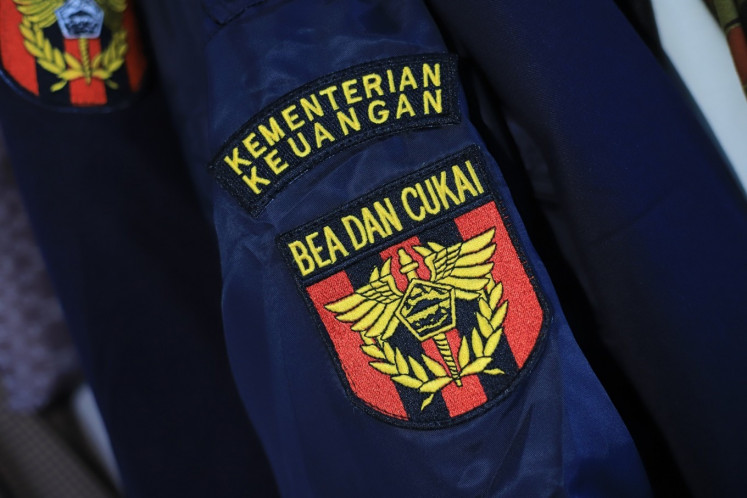Popular Reads
Top Results
Can't find what you're looking for?
View all search resultsPopular Reads
Top Results
Can't find what you're looking for?
View all search resultsWorld Bank's Banga says he is open to using IMF SDRs to boost climate lending
SDRs are backed by dollars, euros, yen, sterling and yuan. The IMF created a $650 billion allocation of new SDRs in 2021 to help its member countries cope with COVID-19.
Change text size
Gift Premium Articles
to Anyone
W
orld Bank President Ajay Banga told Reuters on Tuesday that he is open to finding a way to use International Monetary Fund Special Drawing Rights as capital to increase lending to fight climate change and other global crises.
He said in an interview, however, that he remains skeptical that substantial hurdles to harnessing the IMF's reserve asset can be overcome, and that there are other opportunities to boosting the bank's lending firepower.
"I'm very open to finding a path. I just believe that it is a difficult place to get to," Banga said on the sidelines of IMF-World Bank meetings in Morocco, adding that he will work with other multilateral development banks (MDBs) and with governments on the issue.
SDRs are backed by dollars, euros, yen, sterling and yuan. The IMF created a $650 billion allocation of new SDRs in 2021 to help its member countries cope with COVID-19.
Some SDRs from wealthier countries are now being channeled to poorer countries via IMF trust fund loans, but shifting them to multilateral development banks is a new and untested idea.
Shortly after Banga took office in June, he said he was "not signing on" to the idea, adding that using SDRs held as liquid central bank assets could put the World Bank at risk.
He said a key problem is that some central banks are required by law to hold SDRs as liquid reserve assets, including the European Central Bank.
"I would love it if the IMF and the world changed the rules and said SDRS can be used by the MDBs," he said on Tuesday. "I would be the first in the queue to get them."
Banga is facing pressure from the global development community and the US -- the World Bank's largest shareholder -- to quickly scale up lending to meet its expanded mission to fight climate change and other global crises alongside its traditional anti-poverty and development mission.
He said he will work as hard as he can to squeeze more lending out of the bank's balance sheet over the next year and a half. Including steps laid out in a plan for shareholders this week that would add another $106 billion in lending over 10 years on top of a $50 billion boost from a leverage ratio increase approved in April.
Ultimately, the bank will need its shareholders to approve another general capital increase, and Banga said a decision point may be the bank's next five-year shareholding review, scheduled for 2025.
"That's just a year and a half away. Sometime before that we should be having a real discussion on how to get to a bigger bank," Banga said.
An interim step that could boost lending significantly is for shareholding countries and credit ratings agencies to agree on the use of callable capital -- a cushion of emergency funds committed by countries but not paid in -- to protect the bank from default.
The payoff could be huge, with the Rockefeller Foundation estimating a lending increase of some $900 billion over a decade if ratings agencies modified their evaluations.
Banga said that the rules surrounding the activation of callable capital -- which has never occurred in the bank's 78-year history -- "feel very loose and fluffy."
If countries could agree on a "clear and tangible" process for how such capital calls could be made, Banga said that rating agencies could be persuaded to view these resources as a lending backstop.
But ironing out callable capital and the possible use of SDRs to boost lending "is going to take months," he added.
"If this gets done by the spring, I would be delighted," Banga added.










